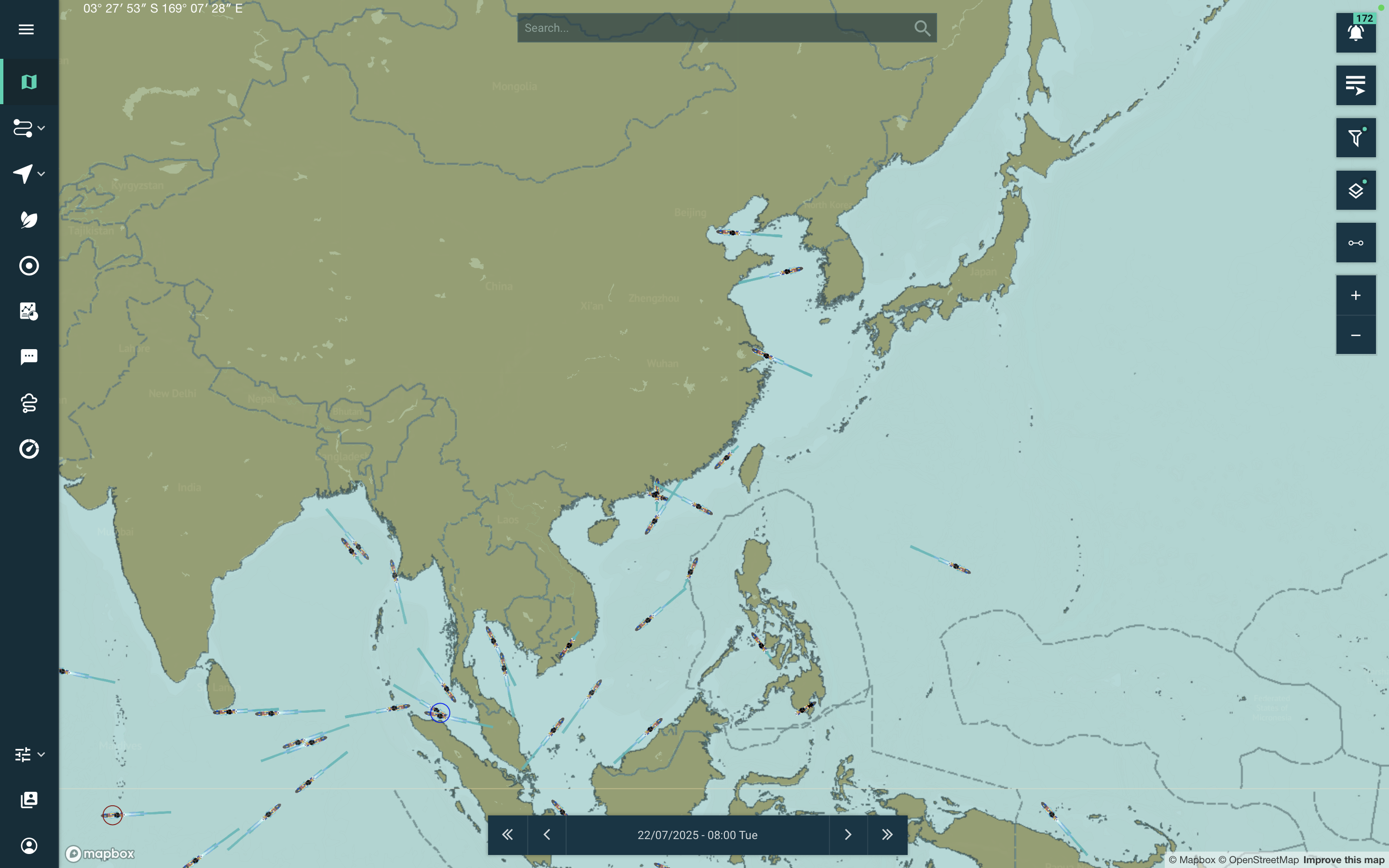
Last week, our team traveled across Asia—Tokyo, Taiwan, Shanghai, Hong Kong, and Singapore—meeting with shipowners, operators, and technology partners. The highlight of the week was The Future of Navigation event hosted by ABB in Singapore, where our Chief Commercial Officer Jack Liman joined speakers from ABB, Bearing AI, and ChartWorld to explore how innovations in navigational and operational technologies are shaping the maritime industry.
Held at ABB’s Singapore office, the event focused on themes like AI-powered performance modeling, smarter routing, and the promise of S-100 for multi-layered, interoperable ECDIS charts. Each speaker brought a distinct perspective, but what stood out most wasn’t the differences between our solutions, it was the growing commitment across vendors to work together.

OrbitMI’s contribution emphasized the importance of connected workflows that make data not only accessible, but actionable. Jack’s presentation built on the idea that maritime technology needs to move beyond point solutions. We don’t just need better data, we need better ways to use it. That means integrating across systems, respecting existing investments, and helping companies improve reporting without forcing them to rip and replace legacy infrastructure.
What we saw throughout the week, both at the event and in meetings with customers, was a clear shift in customer expectations. Shipowners and end users are no longer content with siloed solutions; they’re demanding that technology providers work together. That shift plays directly to one of OrbitMI’s core strengths: our platform was built for integration from day one.
The maritime industry has long relied on fragmented systems for voyage planning, fuel reporting, performance monitoring, and compliance. As the sector matures, companies increasingly recognize that integrated solutions work better than isolated tools. Many larger operators have significant investments in existing systems and need flexible solutions that enhance rather than replace their current infrastructure.
That’s where collaboration creates real value. OrbitMI focuses on partnerships and integrations that transform the disconnected tools our customers already use into intelligent, unified workflows.
Our meetings across the region revealed a dual reality. Larger companies often have sophisticated digitalization plans, but even they struggle with inconsistent onboard systems and messy data. Smaller players, meanwhile, are often still handling key processes manually, managing compliance reporting in Excel or spending days each month on emissions calculations.
Regardless of size, a few things were consistent:
All of this points to the need for solutions that work together. Our approach with Orbit Reporter and other tools is to meet companies where they are ingesting existing reports, validating data, and providing clarity they can trust, while gradually improving the quality and usefulness of their information.
We came away from Asia with a renewed sense of possibility. Not just because the technology is improving, but because the conversations are changing. Customers are no longer asking what one platform can do, they’re asking how the ecosystem fits together. They’re asking who can help them turn reporting into insights, and insights into decisions. And they’re starting to see that integration isn’t a technical luxury, it’s a strategic advantage.
At OrbitMI, we’ve believed in the power of collaboration and integration since our founding in 2019. It’s encouraging to see those ideas gaining broader traction across the industry. As more companies come together to solve shared challenges, we’re grateful to be part of the conversation—and to continue building the kinds of connections that help move maritime forward.
These Stories on Digital Transformation